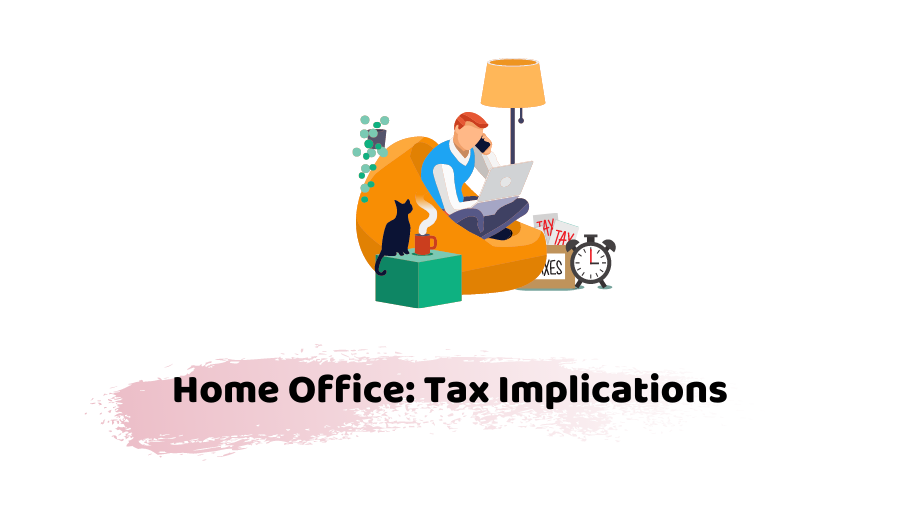Working from home has become a norm after the outbreak of the Coronavirus pandemic. Nowadays, millions of people are working from home by using a spare part of their house. In this blog, we will talk about the tax implications of taking money from a limited company for turning a part of your home into an office.
Some people might enjoy working online from their home office space. And there are a number of business options you can choose from. No matter what business you opt for, you need to consider whether your limited company can pay for it or not and what are the tax implications.
Read on to find out!
Tax Reliefs on Taking money from a Limited Company for Home office?
Though it is possible to pay for your home office by your limited company, but there are a lot of things to consider in this regard.
Usually, there’re no special tax reliefs for planning and establishing your home office through your limited company. However, you can get the tax relief by claiming the capital allowance for the equipment and installations used in your home offices like table, seats and others.
You need to know that the services incurred on your home office cannot be considered as a capital allowance, but you can claim the running cost and repair of your business as a business expense.
Worried about tax implications for converting a part of your home into an office? Don’t worry, just let us know to handle everything for you!
Tax Implications of Taking money from a Limited Company for Personal use?
If you are using your home office for personal use, you might pay personal tax cost on it as it’d be considered a benefit in kind. As it is very difficult to prove to HMRC that you are not using the business part of your home for personal purposes. So before investing the money of your business into it, you need to be ready for the benefit in kind tax.
Can You Get a VAT Advantage by paying for home office through the Limited Company?
If your company is VAT registered and doesn’t avail the flat rate scheme, it can pay for the cost of your home office and other subsidiary costs. These include electrical cost, plumbing etc. Afterwards, your company can claim VAT on the cost incurred.
As the conversion and manufacturing cost of the home office required both goods and services. Therefore, for claiming the tax back, you need to have separate invoices for each type of expense.
Need a VAT specialist? Feel free to reach out to Accotax!
Other Tax Considerations
You need to bear that in your mind that you’d be going to pay the capital gains tax, only if you’re planning to sell your home. Based on these two rules, you can figure out the increased value of your property on which you’d be liable to pay capital gains tax.
The gained value depends on whether you’ve used your property/home as self-employed or as an employee or director.
Self-Employed:
As a self-employed, if you are using a part of your home solely for business purposes, the value of gain needs to be calculated separately from the rest. To do it, you can divide the gain according to part of the home used for business purposes. If you haven’t used it for a certain period, you can calculate the time on which you have used it.
You should remember that the gained value of the home part used for business doesn’t qualify for Principal Private Residence Relief.
Employee or Director:
If you are using a property partly for business purposes, that is not your main residence, HMRC can reduce the PPR on that and you can claim a reasonable amount from the gained value of your property at the time of selling. You need to keep this thing in your mind that buildings can incur more capital gainst tax.
Summing Up
Along with these tax implications of taking money from a limited company for using part of your home for business purposes. You also need to consider that you need to pay business rates on non-domestic properties. But, if you are using just a small part of your business as an office, you are more unlikely to pay business rates. However, if you have done changes to your home into a building or a new structure, you might need to pay it.
So, it is advisable to contact the local authority of your areas to find out the business rates implications. In this way, you can be ready for the tax implications for taking the money from the limited company for your home office.
If you’re looking for cost-efficient, time-saving and responsive accounting services to grow your business, contact our certified chartered accountants in London.
Have a query? Feel free to contact us anytime, we’d get back to you in the fastest possible time!
Disclaimer: This blog is intended for general information on the above topic.





















































